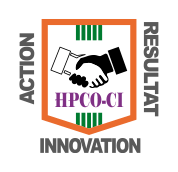Many internal types of relapse triggers triggers stem from negative thought patterns or unmet emotional needs. Challenging these intrusive thoughts involves questioning their validity and replacing them with positive, realistic alternatives. For example, if you feel unworthy or anxious, reframing these thoughts into affirmations or focusing on your achievements enhances emotional resilience. This understanding allows individuals to explore their triggers more openly, recognize patterns, and develop personalized strategies. Feeling understood decreases the likelihood of internalizing negative feelings and increases motivation to practice healthy coping mechanisms. Support networks play a vital role in addiction recovery by helping individuals recognize and cope with triggers effectively.

What is the role of relapse prevention in managing triggers?
- Emotional needs are at the heart of why many people start and continue using substances.
- Overall, managing internal triggers involves a combination of increased self-awareness, strategic planning, healthy lifestyle choices, and support systems.
- Each trigger affects people differently, but emotional and pattern triggers are among the most dangerous because they often go unrecognized until it’s too late.
- These groups also often offer structured accountability measures, like sponsors, who can guide and support you on a more personal level.
This can include managing stress levels, avoiding certain people or situations, or seeking positive relationships. Staying calm during a mental health crisis is essential to create a supportive, non-judgmental environment that eases distress. Validate their feelings, stay composed, and encourage wellness tools like breathing exercises or grounding techniques to help them regain control.
How can I cope with emotions effectively during recovery?

Through individual therapy, specialized trauma work, and family support systems, you’ll learn to identify and effectively respond to your specific triggers. We emphasize aftercare planning, ensuring that the skills developed during treatment continue to support long-term sobriety. Detoxing and stopping the use of the abused substance is often step one toward recovery. Sustainable sobriety is about developing the skills to recognize and effectively manage triggers.

Treatment Programs
External triggers are often easier to identify, as they are people, places, things and activities that make someone want to use drugs or alcohol again. Internal triggers can be more difficult to identify as they are feelings that are often complex. To keep emotions from causing a relapse, people in recovery need to learn coping skills to avoid triggers that can be discovered through therapy.
- For example, the mesolimbic dopamine pathway, central to reward processing, becomes hyperactive.
- By understanding and managing emotional triggers, individuals can pave the way towards lasting change.
- Neither type is technically more dangerous, but emotional triggers can be particularly challenging because they’re internal, always present, and often harder to identify than external ones.
- These strategies empower individuals to cope with triggers like stress, social pressure, or negative moods without relapsing.
By addressing stress, negative emotions, and environmental cues, individuals can build resilience and develop effective coping mechanisms. Resources like five herbs to aid in the recovery process and ways yoga helps with recovery can further contribute to a balanced recovery strategy. By regularly recording when you experience cravings or emotional distress, along with the context—such as environmental cues, people present, or feelings—you can observe patterns over time. This documentation helps you understand specific triggers that are most influential in your recovery journey.
Understanding Emotional Reactivity and Its Impact on Addiction Recovery
Helping individuals anticipate, plan for, observe, and avoid these environmental triggers is at the core of effective relapse prevention. Relapse, although common, is not an end but rather a learning opportunity on the recovery journey. Halfway house Remember, knowledge is a powerful tool in the fight against addiction, and education around relapse triggers can significantly improve recovery outcomes. Equip yourself and your loved ones with these insights to not only identify but also manage potential relapse triggers successfully.
What Is Emotional Relapse?
It is a simple and effective way of highlighting the multifaceted nature of emotions and encouraging people to become more attuned to how their feelings work. By using this worksheet, you can give your client a sense of control over their reactions. Your client can then take proactive steps to manage their emotions and behavior more effectively.
Understanding Relapse Triggers
Ultimately, cultivating awareness and acceptance of emotional responses fosters a compassionate outlook. Recognizing that intense feelings are natural and temporary allows individuals to respond calmly rather than react impulsively. Self-care activities, including proper nutrition, regular exercise, adequate sleep, and relaxation practices, strengthen emotional stability. Support systems—whether friends, family, or support groups—offer a https://shop.lakokosh.ch/2022/02/14/best-sobriety-and-recovery-quotes/ network of encouragement during challenging times. Research shows that a significant percentage of people in recovery may relapse, often due to unrecognized or unmanaged triggers.
